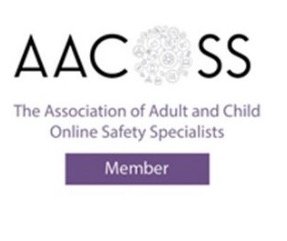Article
Some theories that explain our behaviour behind screens
Dr Aiman El Asam explores a number of theories which explain our online behaviours and actions, and also discusses some important theories about behaviour in general.
The Online Disinhibition theory. John Suler 2014
- Features of the ways in which we interact online can make users less inhibited.
The anonymous nature of the online world and the absence of emotional feedback or response makes young people feel less restrained and more likely to over share information. Some individuals might notice they are more aggressive/hostile online towards others (called Toxic Disinhibition). Some might find themselves sharing intimate or personal information that they would be less likely to share in offline interactions (called Benign Disinhibition). Behind screens, via smart phone or computers, people feel safer (unobserved) which encourages the belief that they could do things without being judged and without bearing the consequence of any actions.
The Social Compensation hypothesis:
- Online life can be an attempt to make up for poor relationships and lack of social support offline
This describes young people’s attempts to compensate for their offline poor relationships, social anxiety, social isolation (introversion), loneliness, low self-esteem or life satisfaction.
Children are more comfortable behind screens and often use the internet and social media to compensate for their poor offline relationship by building what they see as better friendships and relationships online. This supports them in establishing popularity and a sense of belonging.
The Attachment Theory: First described by John Bowlby
- Our early attachment styles are established in childhood through the quality of the child/caregiver bond, shaping future relationships and understanding of the world.
This theory explains that the bond between mother/carer and child is learnt and instant from the moment of birth. Over the years this relationship develops in different ways, depending on how carers meet the child’s needs. Some children have healthier attachments with parents compared to others. Family environment and parental styles play a significant part. Research shows four different forms of attachments: Secure, Avoidant, Ambivalent and Disorganised.
Secure attachment is seen in a confident child who is open with carers and is confident that they will attend to his/her distress (a trusted child-carer relationship).
Avoidant attachment is a form of a relationship where the child feels that his/her needs will not be responded to. For them, it can seem that expressing their emotions might anger the carers therefore they keep it to themselves and keep their distance. Through their experience, they have learnt that they can’t trust their carers to attend to their needs. They find it easier to isolate themselves from uncomfortable situations.
Ambivalent/Anxious children are those who might have experienced inconsistent or unreliable relationships with carers who might not always have been available to attend to the child’s needs. Children express anger and aggressive behaviour to get their carer’s attention (a pull and push relationship).
Finally, children with Disorganised attachment style are those who often feel stressed and scared in their relationship with their carer; this if often due to harsh parental styles. The carer is often both the source of distress and the main responder (comforter). As a result, children struggle to relate to others and to regulate their emotions and feelings.
The attachment theory explains that early childhood attachment and relationships with carers is likely to impact on how children relate to others in childhood and in adulthood (e.g. people in general, siblings, friends and romantic partners).
Self-Determination Theory: grew out of the work of psychologists Edward Deci and Richard Ryan.
Deci and Ryan first introduced their ideas in their 1985 book Self-Determination and Intrinsic Motivation in Human Behaviour.
- All human beings have fundamental psychological needs to be competent, autonomous, and
related to others. - If these needs are met, people are more likely to be self- motivated rather than feeling they
are acting under pressure or lacking motivation.
This theory is based on human motivation and personality. The Self-Determination theory argues that individuals are more likely to be fulfilled and have positive mental health wellbeing if they are “self-determined” i.e., they are intrinsically motivated to pursue their own personal goals and interests in life.
Their self-determination is driven by the following needs: Competence, Relatedness and Autonomy.
In the case of children, a child needs to feel competent in life in general and in tasks/interests he or she performs (e.g., studies, sports, online games). This reflects the child’s effectiveness within their environment.
In terms of Relatedness, involves feelings of closeness and belonging to a social group. This creates a sense of community or group belonging where the child could share and express his/her feelings with likeminded individuals. The child might have the support and the help of others.
In terms of Autonomy, the child needs to feel he/she can make their own decisions and choices in life and that their views and opinions are heard and not dismissed. Such needs should be respected and nurtured to improve the child’s psychological wellbeing (read more)
You might find these useful
A consortium to support fostering in a digital age








